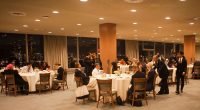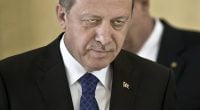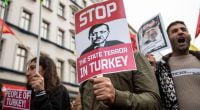Fethullah Gülen’s vision – Building bridges in Los Angeles

Date posted: May 19, 2013
Yavuz Baydar
Heading to Los Angeles, I had good reason to revisit a recent article that my colleague, Dr. Şahin Alpay, wrote for Today’s Zaman.
Titled “Why is Fethullah Gülen so influential?” (May 5), it addresses several basic questions about the personality who was chosen by TIME Magazine in its April 29 issue as one of the 100 most influential people in the world today. His responses lucidly portray a spiritual leader merging, in his own most peculiar way, tradition and modernity.
“In Turkey and all over the world there are millions of Muslims who have no respect either for fundamentalist, fanatical interpretations of Islam or for those who try to turn Islam into a totalitarian political ideology,” Alpay wrote.
He continued: “These millions, while being committed to Islam’s spiritual and social values, want to live in a world where freedom of expression, belief and enterprise have taken root, where ethnic and religious identities are respected, where education replaces ignorance, where science is valued as much as religious beliefs and where productive activity is encouraged and appreciated. This, undoubtedly, is the primary factor which makes Gülen one of the most influential thinkers of the world with messages he gives ‘from a secluded retreat in Pennsylvania.’
“Another reason, surely, is the fact that he is a thinker well versed in Turkey’s rich tradition of Sufism, the people’s Islam. If Said Nursi is the religious scholar who has carried this tradition to the modern age, Gülen is the one who has helped reconcile it with the requirements of an increasingly liberalizing and globalizing world.”
He added: “The schools sponsored by the Hizmet movement, which literally means ‘movement in the service of the people,’ have won the respect of thousands of parents in over 140 countries for the high quality of education they provide in English and local languages, and for establishing “peace bridges” between these host countries and Turkey.”
Then, you also have a story narrated at a meeting not long ago by Hüseyin Gülerce, a columnist with the Zaman daily. Gülen had referred to a parable about the great Sufi, Nasreddin Hoca, who was spotted with a spoonful of yeast standing by a lake. A passerby asked him, “Hoca, what on earth are you doing there?” He answered, “I am trying to put yeast into the lake to make yogurt.” Bewildered, the person stated, “But that will never happen!” To this, Hoca answered, “But imagine if it does.”
Building bridges is a key idea in this grand vision that I value the highest of all. His devotees and many others who understand its importance support the vision and witness the effects whenever or wherever they happen. It successfully brings people of all ages and creeds together, reminding us that in these hard times, with the world in a mess, where words and deeds destroy more than they build, benevolence is not a remote notion.
Last weekend, a powerful manifestation of that spirit was staged — the fourth of its kind — in Los Angeles. The Anatolian Cultures and Food Festival brought tens of thousands of people together for a different interpretation of Asia Minor as the cradle of civilizations, acknowledging its enormous diversity and identities. A large variety of food items from all corners of Anatolia was only a pretext to celebrate a vision of peaceful coexistence, reaching out to a country far away, yet so close with its own diversity.
At a large fairground in Orange Country, under a gentle spring sun, appreciation was expressed in all dimensions. The event brought together congressmen and women from the host country as well as deputies from three Turkish political parties (for the first time!) — the Justice and Development Party (AKP), the Republican People’s Party (CHP) and the Peace and Democracy Party (BDP).
During times full of doubt and confusion, the gathering shone with hopeful messages. While the American hosts were full of praise for the people of Anatolia for their achievements in “showing leadership for a better world,” the Turkish speakers were in unison to “unite with the rest of the world.”
For a day and beyond, one felt that Gülen’s vision was within reach — possible indeed.
Source: Today’s Zaman May 19, 2013
Tags: Fethullah Gulen | USA |
























